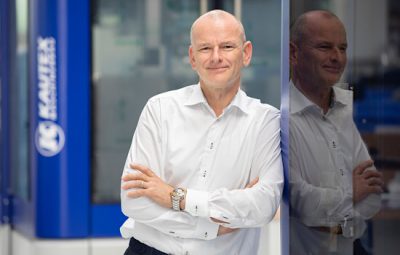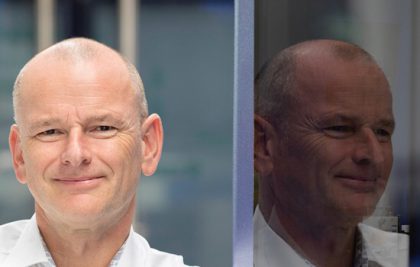 Frankfurt, 27 June 2019 – Interview with Andreas Lichtenauer, Managing Partner, Kautex Maschinenbau GmbH, published by VDMA under the title: “As A Machinery Manufacturer You Can Do A Lot”
Frankfurt, 27 June 2019 – Interview with Andreas Lichtenauer, Managing Partner, Kautex Maschinenbau GmbH, published by VDMA under the title: “As A Machinery Manufacturer You Can Do A Lot”
Which part does mechanical engineering play in circular economy for plastics?
Andreas Lichtenauer: In particular as machine manufacturers, we must ask ourselves what role we can play in the process towards sustainable handling of plastics. A functioning circular economy is the crucial step towards achieving sustainability. We are part of this cycle. That means, as the link between the raw material manufacturers and those processing them, we contribute to providing consumers with recyclable products.
Kautex Maschinenbau operates in the field of blow moulding. With your machines, packaging can be produced and packaging is currently the focus of criticism. How do you deal with this?
Lichtenauer: We can fully understand the outrage about plastic waste on beaches and oceans. As we all know this is not only packaging but also all kinds of plastic waste. It is clear to us that we also carry responsibility for the products manufactured with our machines. It is obvious that there is urgent need for action also on our part. Plastics have an important benefit. This must not be ignored. We must contribute to creating successful circular economies in order to avoid waste.
What possibilities does a machine manufacturer such as Kautex have to improve the way plastics are handled?
Lichtenauer: Part of our work includes options for saving material for hollow plastic parts. In the end, this leads to a reduction in the overall use of plastics. And that’s not all. We contribute to cutting CO2 emissions. It is an important aspect to consider that plastics packaging uses less energy in its production than glass or paper alternatives. There are reasons why there are also global requirements regarding reductions in this sector. It is therefore extremely important to start global recycling processes, and we are working on optimising the processing of PCR, i.e. recycled plastics, and on cutting the use of material. This is the “adjusting screw” we can turn. We will present concrete examples at the K 2019 to show what this means in detail.
Plastics manufacturers are interested in selling their new goods. Are you in contact with them?
Lichtenauer: Raw material producers are as much interested in improving the cycles as the rest of us. After all, we are people who walk through life with our eyes open. However, what causes concern is that in some areas such as medical technology only clean plastics serve as the key factor for medical progress. This is an important benefit of plastics. Unfortunately, at present, people have the impression that these plastics producers only generate excessive waste. We are currently generating many synergies from intensive collaboration with plastics manufacturers.
The recyclate you can get is often of poor quality. Can machines still process it?
Lichtenauer: Our machines can also handle impure recyclates, but the big question remains whether the result is satisfying. This is an issue that should be discussed together with raw material producers and processors. As a rule, plastics made from recyclates are rather grey. The question is if that is acceptable. Eventually, the brand owner decides the colour, which means the one who manufactures the products for the end user. The great challenge with PCR is that it is difficult to predict its quality. In contrast to the consistent quality of virgin material, the recyclability of PCR varies from charge to charge because the waste is not always of the same origin. This means we need to aim at higher process stability in spite of these variations.
How could this work?
Lichtenauer: We have started to introduce a uniform approach in our attempts. We always run a machine with the same settings and under the same conditions such as shape and material. Then we change the material in order to find out what effect this has on product quality and the machine.
If you feed in sub-standard material, doesn’t that result in a bad product?
Lichtenauer: Not necessarily. For example, if the material has inclusions, these usually have an impact on the quality and cause unwanted changes in the wall thickness. By means of recorded process data we can understand which adjustments must be made to the machine and in particular to the extrusion. In this way we can avoid certain wall thickness variations and assure material quality to a certain degree.
How do you feel about bio plastics? What future prospects do they have in your view?
Lichtenauer: I think that in general bio plastics have a future. It is a matter of proportionality. You would miss the target if you chopped down rain forests to produce bio plastics. Moreover, the issue is about avoiding monocultures. Not all bio plastics are produced sustainably. But as always it takes pioneers make a start.
Why Should Be “A Paid-Subscriber” and “Advertiser”
Keeping an independent media in countries that impose limitations on self supporting media, will help to support the humankind’s freedom. If you believe it, please act to be a PRO-MEMBER by clicking “HERE“, or:


 ************************
************************










